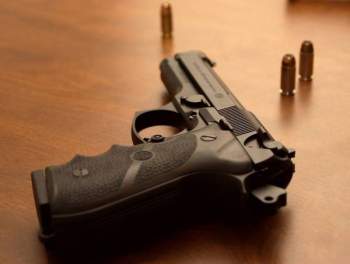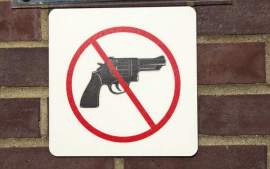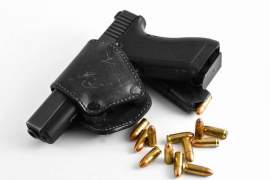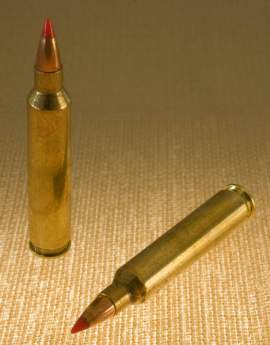
South Dakota Gun Laws

South Dakota is considered to have some of the least restrictive gun policies in the nation. South Dakota state gun law does not require a permit to acquire a shotgun, rifle, or handgun within its borders.
Furthermore, state gun law does not make it necessary for a firearms owner to be licensed, or to have his/her weapons registered with the proper authorities. The minimum age requirement to to purchase a firearm is 18, and any minor under the age may be in possession of handgun as long as the proper permission is acquired from his/her parent or legal guardian. There is no application process in the purchasing of rifles or shotguns, but state gun law does require that an application be submitted when purchasing a handgun.
The buyer must submit the application when purchasing the handgun from a federally licensed firearms dealer. A 48-hour waiting period is necessary to physically acquire the handgun. Once delivery is made, the seller of the handgun must then submit the proper application to the police chief or sheriff of the proper county within six hours of the transaction. The application serves as a record of the transaction for the police for future reference.
State gun law regarding possession makes it illegal for any person with a history of violent crimes or felony charges to be in possession of a firearm. This exclusion also applies for individuals with a record of misdemeanor charges that involve domestic violence. However, after a year of the initial date of the charges, a person with such a history may request to the court to have his right to bear arms restored.
The appointed court will consider the restoration pending an evaluation of the individual, even though his civil rights can be legally restored after that one-year period. South Dakota law on guns requires that a permit be issued to those wishing to carry a concealed handgun or pistol. An eligible person must meet the requirements for possession by state legislation, as well as the following:
Be a citizen of the United States.
A resident of the state of South Dakota for a minimum of 30 days.
Not considered by the state as a "danger to others or danger to self" in the past ten years.
No outstanding history with alcohol, drug, or controlled substance abuse.
No felony or misdemeanor convictions in the past five years, under South Dakota provisions regarding firearms or substance laws.
The issuing of the permit by the appointed sheriff is contingent on the applicant's background check. Given the approval of the sheriff and meeting the stated qualifications, a temporary license to carry may be issued within five days of the application date. The permit to carry does not allow for the carry of a concealed weapon in to establishments or places of business that generate over 50% of their sales from alcohol.
It is also prohibited to carry a concealed weapon in to any public facility such as schools, police stations, and court houses. A permit to carry is not necessary when a handgun is being transported, as long as it is unloaded and carried in the trunk or in a case that can not be concealed on the person. If the gun is carried in a secure case, in may be transported in the vehicle in any way.
South Dakota implements special laws regarding "controlled weapons." Controlled weapons, as defined by state gun law, refers to machine guns, short-barreled shot guns, and silencers or noise-compressors.
It is illegal to be in possession of any firearm or component that falls in to these categories unless the individual is a law enforcement officer on duty, or a member of the armed forces on duty. Another provision that is of worthy note is that gun companies such as sellers, manufacturers, or distributors will not be held liable for any injury or death caused by a firearm.
It is inferred that a firearm, out of its intended nature, is designed to potentially cause harm or death by function, and therefore can not be considered to cause such situations by product defect, but rather out of improper handling or illegal use of the product. In the event of death or injury, the liability falls on the user, not the gun company or manufacturer, under South Dakota state gun law.
NEXT: Tennessee Gun Laws





















